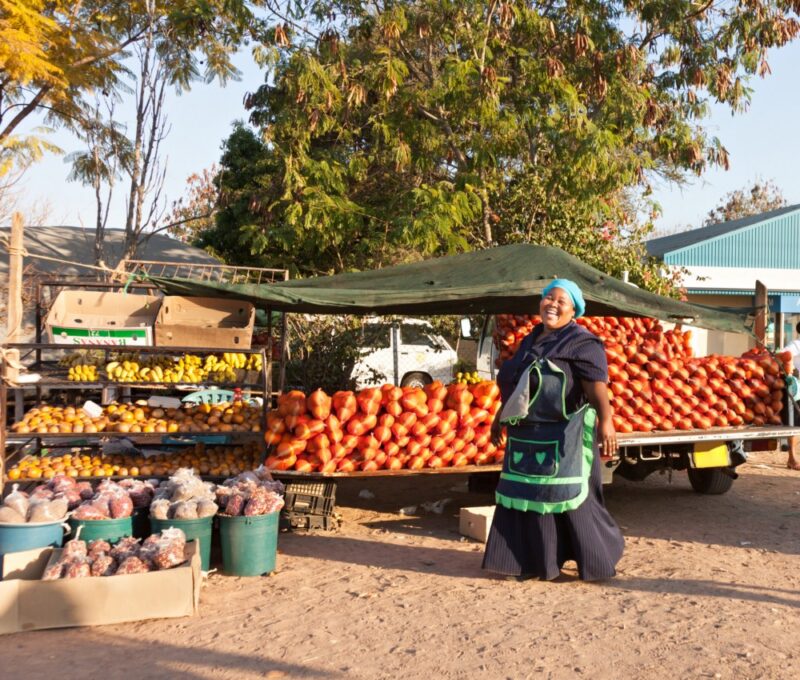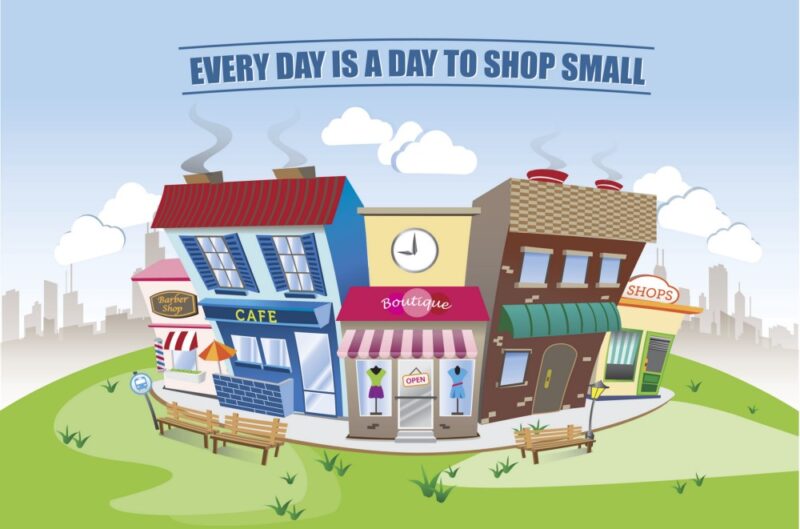Small Businesses are Powerful Agents in Achieving the Sustainable Development Goals.
When transitioning from a moment of crisis to a fundamentally new normal, further reflection is required of us. We must ask ourselves not only how our decisions and action will affect this moment in time, but also we must ask how we foresee a future for all. It is only through this type of reflection that we can genuinely and optimally create a present that is informed and encouraged by our reimagined future. The Sustainable Development Goals are the only apparent solution that focuses on the inclusion of all people, independent of societal status or national identity.
Negotiated for over a year by working groups across the globe, these intentionally constructed goals provide the cornerstone needed to bring about a more equitable world for all. The SDGs search to eliminate and end all social, economic, and environmental abuses at play in our current system. The SDGs are purposefully designed to interrelate with each other, meaning if a group or business decides to focus on three of these goals, they will end up working on all of them. As micro-, small-, and medium-sized enterprises (MSMEs) represent about 70 percent of the formal economy and about 90 percent of the total employment in the developing world; it seems as though MSMEs are the perfect sector to begin working to create and disseminate newly created systems that aid the local community while working from a global perspective. In this moment of COVID-19, people’s financial, social, and humanitarian needs are amplified like never before. Industry, as it has for much of human history, creates the channels and timing of our lives and, therefore, holds impeccable power. We can use entrepreneurship and MSMEs to create jobs and promote markets in the world. The developing world is an enormous market to be engaged in. In contrast, the developed world has room for MSMEs working to create humanitarian- and environmentally-focused markets to allow for sustainable growth.
In this unique moment, groups like the United Nations Conference on Trade and Development (UNCTAD) and the International Council for Small Business (ICSB) can work to unshackle the traditional constraints on MSMEs. Those include limited access to information, to strategic resources, adequate financing, to scaling solutions, to reliable electricity, in addition to favorable business environments, to competitiveness, to market concentration, and online trade readiness. By viewing MSMEs and the SDGs together in a transformative light, we can devise solutions focused on growing prosperity with and for everyone, while working effectively at our available, finite resources. As much of the world still live without access to essential drinking water, to food, or proper healthcare, there is a big market for finding sustainable solutions to solve the world’s most pressing and vital issues.
Organizations centered around promoting the work of MSMEs are empowering business owners to provide services and necessary access to the SDGs. The UN Global Compact saw an incredible commitment to learning to implement sustainable principles by MSMEs around the world. However, the next step for these organizations would be to generate information that can be understood, and that is relevant for all MSMEs. The G20 is putting forward 5 trillion dollars, and it is of the utmost importance that this money is dispersed appropriately amongst MSMEs, specifically those owned by women. If done correctly, this financial assistance can work to rebalance the current imbalances in industrial realms. In addition to financial aid, hopefully, we can bring attention to raising awareness of MSMEs and their ability to reach SDG opportunities by adapting the tools to their needs and then follow by supporting innovation and incubators with the deployment of the solutions that MSMEs can create, which will eventually accelerate the new sustainable ecosystem imagined. It is from this work that we can focus on pre-emptive processes to create insurance funding for MSMEs after future economic and natural disasters. This fund will promote the wellbeing of all, by supporting the MSMEs that uphold our communities and nations.
It is only through transparent and dedicated partnerships that this work will be achieved successfully. UNCTAD works to amplify consensus building, research and analysis, and technical assistance of MSMEs. By creating open forums with the UN Member States, they can create entrepreneurship policy frameworks, resolutions, and promotion and market access for entrepreneurs. In working with partner organizations, like the ICSB, they can continue to publish researched reports on the current states of trade and development, world investment, and technology, and innovation to find effective policies. These studies also help determine the best technical assistance for MSMEs’ entrepreneurs to achieve structural transformation.
In their concluding discussion, Dr. Alex DeNoble, from San Diego State University and the ICSB, and Dr. Chantal-Line Carpentier, Chief of Office of the Secretary-General UNCTAD, pushed each other to develop their collective understanding as to where universities can best situate themselves as educators and creators of future entrepreneurs, while also promoting the research and educational exchanges possible within and throughout their global communities. These possible exchanges hold the potential to release incredible theories and practices of innovation and purpose put forth by future and current MSME owners. The future is of a sustainable essence, one that is created with and for all. The most encouraging way for us to imagine our best possible future is through the eyes of MSME entrepreneurs around the world. Let us hear them and let us work with them and for them.
Written by: Dr. Ayman El Tarabishy



